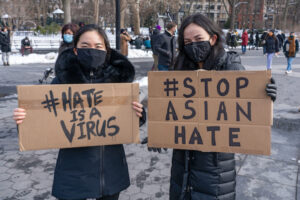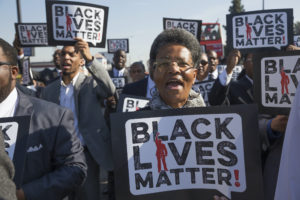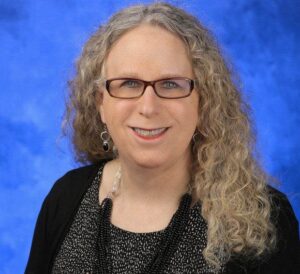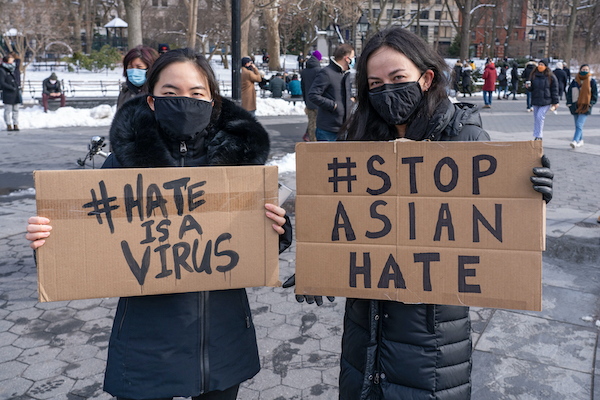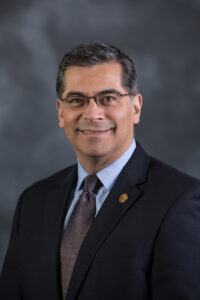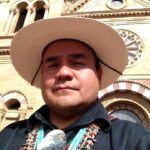This summer, NMAC will officially launch our Ending Stigma through Collaboration and Lifting All to Empowerment (ESCALATE) and Engage Leadership through Employment, Validation, and Advancing Transformation and Equity (ELEVATE) training programs. For more information on these programs, please contact Charles Shazor at cshazor@nmac.org or Terrell Parker at tparker@nmac.org.
ESCALATE
Purpose
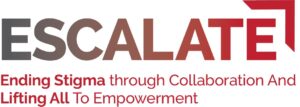 The purpose of the ESCALATE training program is to facilitate transformative and relational change in Ryan White HIV/AIDS Programs and the communities they serve through deepening awareness of and practices for cultural humility amongst Persons with HIV (PWH) and RWHAP providers.
The purpose of the ESCALATE training program is to facilitate transformative and relational change in Ryan White HIV/AIDS Programs and the communities they serve through deepening awareness of and practices for cultural humility amongst Persons with HIV (PWH) and RWHAP providers.
The ESCALATE program will train participants in the 57 jurisdictions identified in Ending the HIV Epidemic: A Plan for America (EHE) to recognize and address HIV stigma with a particular focus on transgender/gender nonconforming individuals, men who have sex with men, and the Black/African American community. NMAC works in partnership with NORC at and the University of Chicago, Abt Associates, and TRX Development Solutions.
Central to the focus of ESCALATE are community involvement and cultural competency. HIV stigma is a multi-dimensional social issue with various complexities and nuances. Understanding the needs of community is critical. The ESCALATE program engages subject matter experts from impacted communities through the curriculum design. This ensures “buy in” and also guarantees the success of the program. MIPA or the Meaningful Involvement of People Living with HIV and AIDS challenges the idea of creating a service or program without the intentional inclusion and advice of PWH.
Goals
- Create an environment of psychological safety for persons with HIV and RWHAP providers to deepen their understanding and practices of cultural humility
- Effectively engage in difficult dialogues with communities and institutions about the influence of race, power, privilege, and identity
- Identify stereotypes, prejudice, and discrimination as forms of bias while learning to recognize and manage unconscious thoughts and feelings influencing behaviors
Objectives
- Create a shared mental model of cultural humility in theory and in practice
- Define the “American Dilemma” in the context of race and health care delivery
- Define intersectionality and demonstrate how it impacts outcomes for marginalized people and groups
- Introduce the multidimensional model of privilege as a tool to disrupt the single-target group approach
- Introduce and utilize de-biasing tools and strategies
- Use reflection and self-critique to explore participant attitudes and beliefs
- Review individual and organizational strategies to disrupt implicit bias in health care settings
ESCALATE Training Participants
- Persons with HIV (PWH) and RWHAP Recipient/Subrecipients Partners (Parts A, B, C, & D)
ELEVATE
Purpose
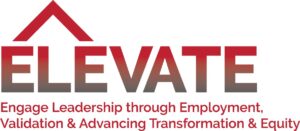 The purpose of the ELEVATE program is to expand the participation of people living with HIV (PLHIV) in the HIV workforce, planning councils, and other community leadership roles. ELEVATE builds on the achievements of HRSA and Ryan White HIV/AIDS Program (RWHAP) training programs and incorporates their features into a single project. NMAC works in partnership with the JSI Research Training Institute, Inc., the Association of Nurses in AIDS Care (ANAC), and the Latino Commission on AIDS (LCOA). Program evaluation will be provided by NMAC’s long term evaluation partner, ICF an internationally recognized evaluation firm.
The purpose of the ELEVATE program is to expand the participation of people living with HIV (PLHIV) in the HIV workforce, planning councils, and other community leadership roles. ELEVATE builds on the achievements of HRSA and Ryan White HIV/AIDS Program (RWHAP) training programs and incorporates their features into a single project. NMAC works in partnership with the JSI Research Training Institute, Inc., the Association of Nurses in AIDS Care (ANAC), and the Latino Commission on AIDS (LCOA). Program evaluation will be provided by NMAC’s long term evaluation partner, ICF an internationally recognized evaluation firm.
The ELEVATE program is modeled on NMACs previous HRSA-supported training program, Building Leaders of Color (BLOC) and will integrate the BLOC curriculum with other training programs sponsored by HRSA including: JSI’s “Community HIV/AIDS TA Training” (CHATT) and “Access Care Engagement Technical Assistance Center” (ACE TA Center); the Center for Quality Improvement and Innovation’ s “Training Consumers on Quality Plus;” and Boston University School of Social Work’s “Improving Access to Care: Using Community Health Workers to Improve Linkage and Retention in Care (Among People of Color).” ELEVATE integrates the unique contributions of each of these past programs to provide a state-of-the-art, comprehensive training program for the leadership and inclusion of PLHIV in community decision making bodies and the agencies that serve PWH.
Goals
- Increase the number of PWH meaningfully involved in the planning, delivering, and improving of RWHAP services
- Build the capacity of PWH to be meaningfully involved in community planning for HIV prevention, care, and treatment services
- Build the capacity of PWH to be meaningfully involved in clinical quality management (CQM) activities
- Build the capacity of PWH to be meaningfully involved in the delivery of HIV prevention, care, and treatment services
- Develop individualized action plans to increase engagement and involvement in the planning, delivering, and improving of RWHAP services
Audience
Persons with HIV (PWH) aligned with a RWHAP Recipient or Subrecipient
- Employed by RWHAP
- Members of Planning Bodies or Planning Councils
- Members of Consumer, Community, & Patient Advisory Boards
- Directors from the Boards of RWHAP
- Members of Clinical Quality Management Teams or Committees
- Other PWH aligned with a RWHAP seeking greater involvement
ESCALATE is supported by the Health Resources and Services Administration (HRSA) of the U.S. Department of Health and Human Services (HHS) and the Minority AIDS Initiative as part of a financial assistance award totaling $1,600,906. ELEVATE is supported by the Health Resources and Services Administration (HRSA) of the U.S. Department of Health and Human Services (HHS) as part of a financial assistance award totaling $796,749 respectively with 100 percentage funded by HRSA/HHS. The contents are those of the author(s) and do not necessarily represent the official views of, nor an endorsement, by HRSA/HHS, or the U.S. Government.
